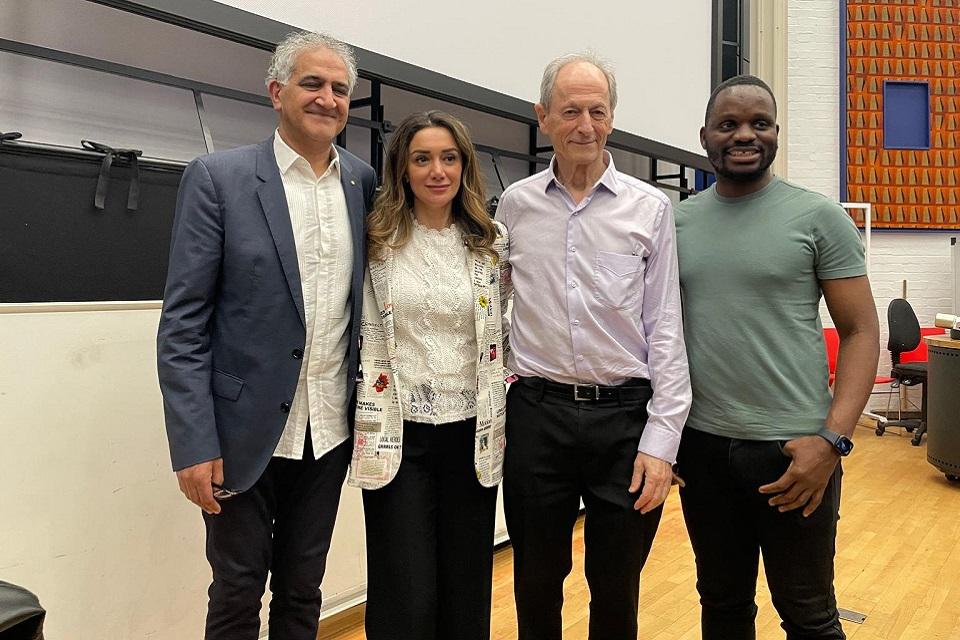Professor Sir Michael Marmot speaks at research centre relaunch
Primary page content
Health inequalities expert Professor Sir Michael Marmot delivered a lecture at the relaunch of Goldsmiths’ Centre for Community Engagement Research (CCER) this week.

From left to right: David Woodger, Dr Atlas Torbati, Professor Sir Michael Marmot, Dr Pearson Nkhoma
In his lecture, Professor Sir Michael Marmot explored important connections between health inequity and social justice, and highlighted the urgent need for change in the UK: themes which have been consistent features of his work over time and which speak directly to priorities for the CCER, and across Goldsmiths.
The CCER is an established interdisciplinary research centre at Goldsmiths, which has been relaunched under the leadership of David Woodger as Director, and Dr Pearson Nkhoma and Dr Atlas Torbati as Co-Deputy Directors. Its overarching goal is to conduct research that addresses societal issues to inform policy, theory, and practice.
One of the Centre’s distinctions is its collaboration and active engagement with community organisations, NGOs and academic disciplines that are inclusive of different and opposing perspectives.
David Woodger, Director of the CCER
David continued: "The Centre brings colleagues in different fields together to learn with and from one another, looking for creative solutions to knotty, real-world challenges. We are very excited about the possibilities it offers, and will be seeking to make research and engagement meaningful in terms of empowering social transformation in local and global contexts."
Goldsmiths awarded Professor Marmot an Honorary Fellowship in 2023 in recognition of a long career dedicated to the pursuit of equality. He has undertaken reviews on tackling health inequality for UK governments – including the 2021 report Build Back Fairer, which exposed the extent of inequalities in death rates due to Covid-19 – as well as extensive international work with the World Health Organisation (WHO). His scientific work has clearly evidenced the relationship between public health and social justice, using advocacy to drive significant change.
Find out more about the Centre for Community Engagement Research (CCER) and its researchers.